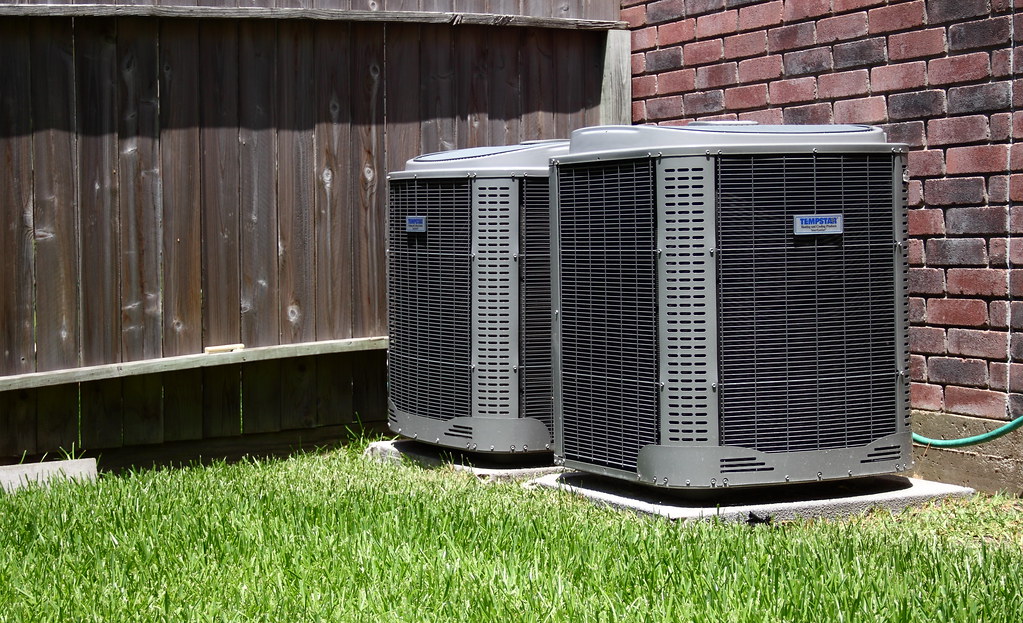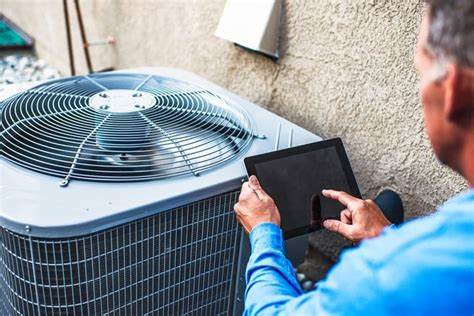The AC condenser often plays an underappreciated role in the air conditioning system, overshadowed by components like the compressor and evaporator. Yet, it establishes its significance through its critical function of heat expulsion and refrigerant condensation. This essential process sets it apart in the intricate world of air conditioning, marking the AC condenser as a component without which efficient cooling would be impossible.
Key types of AC condensers include Air-cooled and Water-cooled condensers, each known for its unique methods of heat dissipation. Single-fan and Double-Fan AC condensers also stand out, offering varying levels of cooling efficiency for spaces of different sizes. Diving deeper, each type of AC condenser brings its own set of advantages, cooling mechanisms, maintenance requirements, and suitability for certain climates or environments.
The following sections will delve into these aspects in detail, providing a comprehensive understanding of what makes the AC condenser a pivotal part of maintaining a comfortable indoor atmosphere.
An AC condenser is a key AC system component
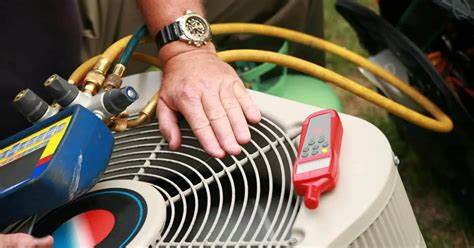
The AC condenser stands as a cornerstone in the air conditioning system, pivotal for its role in the refrigeration cycle. It transforms high-pressure gas from the compressor into a cooler, liquid form, making it indispensable for efficient cooling. This process not only aids in reducing indoor temperatures but also plays a crucial part in ensuring the system’s overall effectiveness.
Recognizing the AC condenser’s function is vital for understanding how air conditioning units maintain cool, comfortable environments, highlighting its importance in both residential and commercial settings.
How does an AC condenser function?
The AC condenser functions by receiving high-pressure gas from the compressor, which then cools and condenses into a liquid form. During this process, heat is expelled to the outside air, playing a key role in the air conditioning system’s ability to cool a space efficiently. This transformation from gas to liquid is essential for the refrigeration cycle’s success, ensuring that the AC system can continue to provide cooling.
It receives high-pressure gas from the compressor.
The compressor sends high-pressure gas to the AC condenser, initiating the cooling cycle.
The gas cools and condenses into liquid form.
Within the condenser, this high-pressure gas cools down and changes into a liquid, a crucial step for air cooling.
Heat is expelled to the outside air during this process.
As the gas transforms, the AC condenser expels the heat to the outside, ensuring the indoor space remains cool.
Importance of the AC condenser
The AC condenser is crucial for the refrigeration cycle’s success, enabling the AC system to cool efficiently. Without it, the transition of refrigerant from a gas to a liquid state would not occur, hindering the entire cooling process. Its role in expelling heat to the outside air is essential for maintaining a comfortable indoor environment.
Thus, the AC condenser is not just a component; it’s the heart of the cooling system, ensuring that homes and businesses stay cool and comfortable.
Also Read: Wifi Air Conditioner
Essential for the refrigeration cycle’s success.
The AC condenser is vital for transforming refrigerant from gas to liquid, a crucial phase in the cooling cycle.
Enables the AC system to cool efficiently.
By expelling heat to the exterior, the condenser ensures the AC system operates with maximum efficiency.
Types of AC condensers
AC condensers come in different types, each with unique cooling mechanisms. Air-cooled condensers utilize ambient air to dissipate heat, making them suitable for most residential and commercial settings. On the other hand, water-cooled condensers use water for heat exchange, offering efficient cooling in environments where air-cooled systems might not be as effective.
Understanding the differences between these types can help in selecting the right AC condenser for specific cooling needs and environmental conditions.
Air-cooled condensers use ambient air for cooling.
These condensers harness the ambient air to dissipate heat, making them versatile for a wide range of environments.
Water-cooled condensers use water for heat exchange.
These units utilize water to absorb and remove heat efficiently, which is ideal for settings where air-cooled options are less effective.
Maintaining an AC condenser
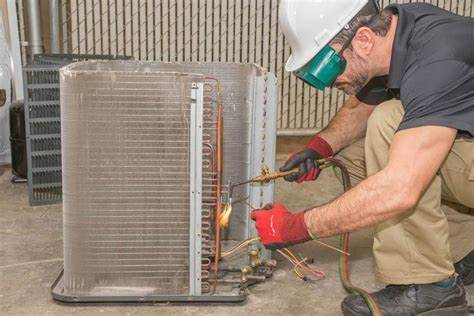
Proper maintenance of an AC condenser is essential for ensuring optimal performance and longevity of the air conditioning system. Regularly cleaning the coils helps maintain efficiency by allowing for better heat expulsion. Inspecting and repairing any refrigerant leaks promptly is crucial to prevent damage and ensure the system operates effectively.
Additionally, keeping the condenser area free from obstructions allows for adequate airflow, which is vital for the condenser’s function. Adhering to these maintenance practices can prevent common issues and keep the AC system running smoothly.
For healthier indoor air quality, choose the best air purifiers and best air filters for your home.
Clean coils regularly for optimal performance.
Ensuring the coils are clean is crucial for maintaining high efficiency in heat expulsion and overall system performance.
Inspect and repair any refrigerant leaks promptly.
Quickly addressing refrigerant leaks is essential to prevent system damage and ensure efficient operation.
Keep the condenser area free from obstructions.
A clear condenser area promotes better airflow, enhancing the unit’s cooling efficiency.
Common AC condenser issues
AC condensers can face several common issues that affect their performance and efficiency. Dirt or debris can cause blockages, restricting airflow and reducing the system’s ability to expel heat. Leaks in the refrigerant system compromise cooling efficiency and can lead to significant damage if not addressed.
Additionally, damage to coils from corrosion or impact can impair the condenser’s function, hindering the refrigeration cycle. Recognizing these common problems is crucial for timely intervention and maintenance, ensuring the AC system remains in optimal working condition.
Dirt or debris causing blockages.
Blockages from dirt or debris severely impede airflow, hindering the system’s ability to efficiently cool.
Leaks in the refrigerant system.
Refrigerant leaks not only decrease cooling efficiency but also pose environmental risks.
Damage to coils from corrosion or impact.
Coil damage due to corrosion or physical impact disrupts the condenser’s functionality, affecting the cooling process.
Troubleshooting an AC condenser
Troubleshooting an AC condenser involves a systematic approach to identifying and resolving issues affecting its performance. Initially, inspect for physical damage or signs of leakage, which can indicate problems needing immediate attention. Next, verify the condenser fan’s functionality; a non-working fan can lead to overheating and system failure.
For more complex issues related to electrical or refrigerant problems, seeking professional help is advisable. Effective troubleshooting can prevent minor issues from escalating into major repairs, ensuring the AC system remains efficient and reliable.
Inspect for physical damage or signs of leakage.
Carefully check for any visible damage or leaks, which can significantly impact the system’s efficiency and require immediate attention.
Verify the condenser fan’s functionality.
It’s essential to ensure the fan is working properly, as its role in heat dissipation is critical for the condenser’s performance.
Seek professional help for electrical or refrigerant issues.
For complex problems involving electrical components or refrigerants, consulting with a professional is strongly advised to ensure safe and effective resolution.
Preventing AC condenser problems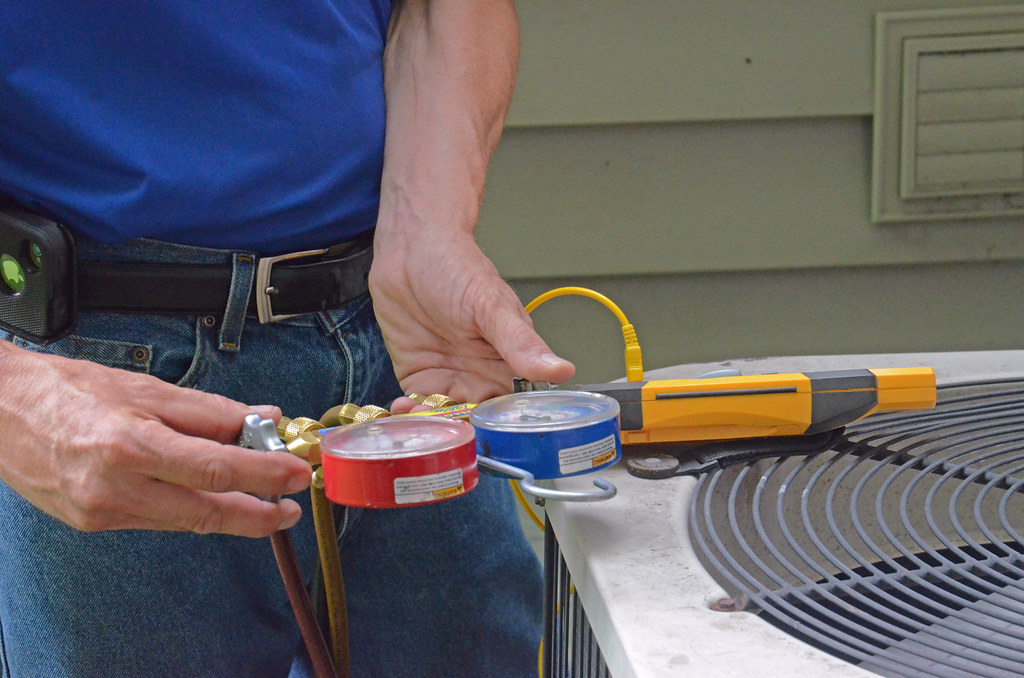
Preventing issues with the AC condenser begins with regular maintenance checks, which can identify potential problems before they escalate. Using a protective cover during harsh weather conditions can shield the condenser from environmental damage. Additionally, ensuring proper installation is critical to avoid early failures and extend the lifespan of the condenser.
By following these preventative measures, the risk of common condenser problems can be significantly reduced, leading to a more reliable and efficient AC system.
Schedule regular maintenance checks.
Regular maintenance is crucial for early detection and resolution of potential issues, ensuring optimal system performance.
Use a protective cover in harsh weather conditions.
Employing a protective cover shields the condenser from extreme weather, significantly extending its durability.
Ensure proper installation to avoid early failures.
Proper AC installation is essential to prevent initial malfunctions, contributing to the system’s efficiency and extended lifespan.
Diagnosing AC condenser performance

Diagnosing the performance of an AC condenser involves monitoring several key indicators. Cooling efficiency and temperature consistency are primary metrics that signal the health of the condenser. Unusual noises can indicate mechanical issues, while excessive energy consumption may suggest the system is working harder than necessary due to underlying problems.
By paying attention to these signs, one can effectively gauge the condenser’s performance, identifying areas that may require maintenance or repair to ensure the AC system continues to operate at its best.
Monitor cooling efficiency and temperature consistency.
Tracking the system’s cooling efficiency and ensuring temperature consistency are vital for diagnosing the condenser’s performance.
Listen for unusual noises indicating mechanical issues.
Unusual sounds emanating from the unit can be a clear indicator of mechanical problems requiring prompt investigation.
Check for excessive energy consumption as a sign of malfunction.
Elevated energy usage can be a telltale sign of system inefficiencies or malfunctions, warranting further examination.
Maximizing Your AC Condenser’s Potential
Your air conditioner tirelessly keeps you cool, but have you ever wondered how it banishes all that hot air? The unsung hero of this process is the AC condenser, a crucial component that takes center stage in heat removal. Each has its own strengths and weaknesses, making some better suited for specific climates or space sizes. We’ve also explored each condenser type’s unique cooling mechanisms, maintenance requirements, and ideal environments.
Now that you understand the AC condenser’s role, you can become more proactive in maintaining its performance. By keeping an eye out for signs like reduced cooling efficiency, unusual noises, or unexpected energy spikes, you can identify potential issues early on.
Callidus Air can be your partner in ensuring your AC condenser operates at peak efficiency. Contact Callidus Air today for a free consultation and experience the peace of mind that comes with a healthy AC system!

